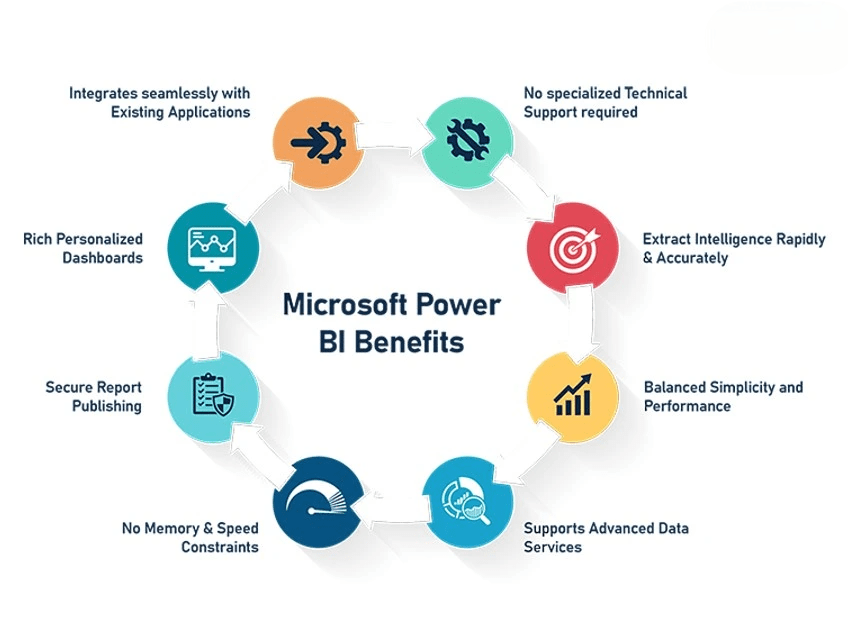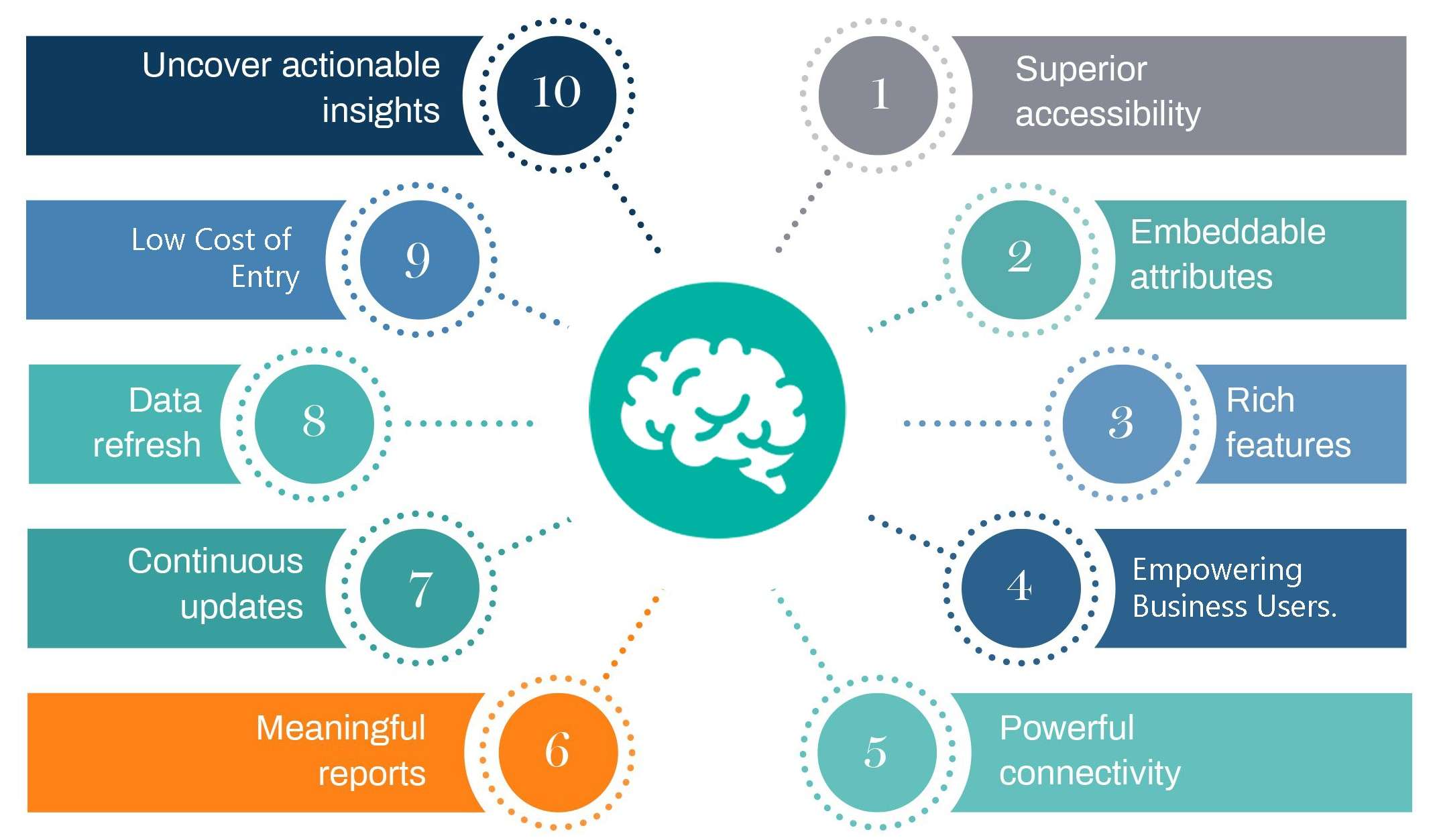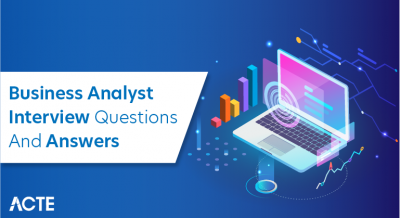
- Who is a Power BI Consultant
- Key Responsibilities of a Power BI Consultant
- Required Skills and Expertise
- Certifications for Power BI Consultants
- Power BI Consultant Career Path
- Tools Used by Power BI Consultants
- Power BI Consulting vs. Development
- Client Interaction and Requirement Gathering
Who is a Power BI Consultant
A Power BI Consultant is a data analytics expert who specializes in using Microsoft Power BI to help organizations convert raw data into meaningful insights and drive informed decision-making. These professionals are skilled in data modeling, visualization, and dashboard creation, and they work closely with stakeholders to understand business needs and deliver tailored BI solutions. Their role typically involves connecting to various data sources, transforming data using Power Query, writing DAX (Data Analysis Expressions) formulas for advanced calculations, and building interactive reports that highlight key performance indicators (KPIs) and business trends. Power BI Consultants also ensure data integrity, optimize report performance, provide Business Analyst Training, and sometimes train users to maximize the platform’s capabilities. With a mix of technical proficiency and business acumen, they act as a bridge between IT and business teams, translating complex data into clear, actionable insights. Whether they operate as internal team members or external advisors, Power BI Consultants play a critical role in helping organizations harness the power of data for strategic planning, operational efficiency, and competitive advantage.
Are You Interested in Learning More About Business Analyst? Sign Up For Our Business Analyst Training Today!
Key Responsibilities of a Power BI Consultant
- Requirement Gathering and Analysis: Collaborate with stakeholders to understand business objectives, data needs, and reporting requirements to ensure solutions align with organizational goals.
- Data Integration and Preparation: Connect and integrate data from multiple sources such as Excel, SQL Server, cloud services, and APIs, while cleaning and transforming the data for analysis a key skill often highlighted in Power BI Resume Tips.
- Data Modeling and DAX Development: Design efficient data models using relationships, hierarchies, and calculated columns/measures using DAX (Data Analysis Expressions) for meaningful analysis.
A Power BI Consultant plays a vital role in transforming business data into insightful, interactive reports and dashboards that support data-driven decision-making. By leveraging their expertise in Power BI and related tools, they help organizations understand their data, uncover trends, and drive strategic initiatives. Below are the key responsibilities typically handled by a Power BI Consultant:

- Report and Dashboard Development: Create interactive, user-friendly dashboards and reports that present complex data in a clear and visually compelling way.
- Performance Optimization and Maintenance: Optimize Power BI reports for speed and efficiency, and ensure ongoing maintenance, updates, and data refreshes are properly managed.
- Training and Support: Provide end-user training, documentation, and ongoing support to ensure effective adoption and use of Power BI solutions across the organization.
Required Skills and Expertise
A successful Power BI Consultant must possess a well-rounded blend of technical, analytical, and communication skills to deliver impactful business intelligence solutions. Proficiency in Microsoft Power BI is essential, including expertise in data visualization, report creation, Power Query, and DAX (Data Analysis Expressions) for advanced calculations. A strong foundation in data modeling and relational databases, particularly using SQL, is critical for designing efficient and scalable solutions. Familiarity with data warehousing concepts, ETL processes, and Export Power BI Data to Excel Easily tips, and integrating data from various sources such as Excel, SharePoint, SQL Server, Azure, and other cloud platforms is also important. In addition to technical skills, a deep understanding of business processes and the ability to translate complex data into meaningful insights is vital. Power BI Consultants should also have strong problem-solving abilities, attention to detail, and an analytical mindset. Experience with other Microsoft tools such as Excel, Power Apps, and Power Automate adds significant value. Effective communication and collaboration skills are crucial, as consultants frequently interact with stakeholders to gather requirements, present findings, and provide training. The ability to work independently or as part of a team, manage time efficiently, and adapt to evolving business needs further defines the skillset needed to excel in this role.
To Explore Business Analyst in Depth, Check Out Our Comprehensive Business Analyst Training To Gain Insights From Our Experts!
Certifications for Power BI Consultants
- Microsoft Certified: Power BI Data Analyst Associate: This is the most recognized certification for Power BI professionals, focusing on data preparation, modeling, visualization, and deploying reports using Power BI.
- Microsoft Certified: Ideal for consultants working with cloud-based data solutions, this certification covers data integration, Compare Power BI vs Excel tips, transformation, and storage using Azure services, often used with Power BI.
- Microsoft Certified: Data Analyst Associate (Exam DA-100 Retired, replaced by PL-300): Though retired, the skills assessed in DA-100 remain relevant. The newer PL-300 exam now replaces it and is widely accepted for Power BI skill validation.
Certifications play a crucial role in validating the skills and expertise of Power BI Consultants, making them more competitive in the job market and helping build trust with clients and employers. These certifications demonstrate a consultant’s proficiency in data analysis, business intelligence, and the Power BI ecosystem. Below are six valuable certifications that aspiring and experienced Power BI Consultants should consider:

- Microsoft Certified: Azure Fundamentals (AZ-900): This entry-level certification helps consultants understand Azure services, which is beneficial when working with Power BI in cloud environments.
- Tableau Desktop Specialist (Optional): While not Power BI-specific, knowledge of other BI tools like Tableau can enhance a consultant’s versatility and competitive edge.
- Certified Business Intelligence Professional (CBIP): Offered by TDWI, this certification validates broader BI expertise beyond tools, covering analytics, data integration, and leadership in BI projects.
- Microsoft Power BI Desktop: The primary development tool for creating data models, visuals, and reports. It’s where most of the report-building and analysis work happens.
- Power Query Editor: Integrated within Power BI, this tool is used for data transformation, How to Convert JSON to Excel tips, cleaning, and preparation using a user-friendly interface and M language.
- DAX (Data Analysis Expressions): A formula language used in Power BI to create custom calculations, measures, and expressions for advanced data analysis.
- Microsoft Excel: Often used for quick data analysis, data preparation, or as a data source; Excel also integrates well with Power BI.
- SQL Server Management Studio (SSMS): Used for querying and managing databases, especially when working with SQL-based data sources before bringing them into Power BI.
- Microsoft Power Platform (Power Automate & Power Apps): These tools help automate workflows and create custom business apps that complement and extend Power BI functionality.
Power BI Consultant Career Path
The career path of a Power BI Consultant typically begins with a foundation in data analysis, business intelligence, or IT-related roles such as Data Analyst, Business Analyst, or SQL Developer. As professionals gain experience working with data, reporting tools, and databases, they often transition into roles focused on Power BI by learning the platform’s core features, such as data modeling, DAX, and dashboard development. Entry-level Power BI Consultants may start by supporting internal reporting needs, gradually advancing through Business Analyst Training to more strategic responsibilities like managing data projects and designing enterprise-level BI solutions. With continued growth, consultants can move into senior or lead consultant roles, overseeing larger projects and mentoring junior analysts. From there, career options expand into BI Architect, Data Analytics Manager, or even Chief Data Officer (CDO) roles, depending on their strategic vision and leadership capabilities. Some professionals also choose to specialize further in areas like data engineering or AI integration within the Power Platform. Freelancing and independent consulting are viable paths as well, especially for those with strong client management and technical skills. Overall, the Power BI Consultant career path offers diverse opportunities for advancement, skill development, and leadership in the fast-evolving field of data and analytics.
Tools Used by Power BI Consultants
Power BI Consultants rely on a range of tools and technologies to efficiently gather, transform, model, and visualize data. These tools help streamline the business intelligence process and enable consultants to deliver accurate, interactive, and insightful reports. While Power BI is the core platform, several supporting tools are often used in combination to enhance data workflows and project outcomes. Below are six tools commonly used by Power BI Consultants:
Preparing for Business Analyst Job? Have a Look at Our Blog on Business Analyst Interview Questions and Answers To Ace Your Interview!
Power BI Consulting vs. Development
Power BI Consulting and Power BI Development are closely related roles within the business intelligence domain, but they differ in focus, responsibilities, and approach. A Power BI Consultant typically takes on a broader, strategic role, working closely with stakeholders to understand business needs, define BI objectives, and design data-driven solutions that align with organizational goals. Consultants are involved in project planning, requirement gathering, Data Analytics Solutions for Strategic Growth, data strategy, and advising on best practices for implementation and adoption. Their role is often client-facing, combining technical knowledge with strong communication and problem-solving skills to deliver tailored insights and recommendations. In contrast, a Power BI Developer focuses primarily on the technical aspects of building and deploying Power BI solutions. This includes tasks such as data modeling, writing DAX calculations, building dashboards, integrating data sources, and ensuring report performance. Developers work more behind the scenes, translating the consultant’s vision or business requirements into functioning reports and analytical models. While both roles require a solid understanding of Power BI and data analytics, consultants operate at a more strategic level, often overseeing or guiding development work. In many teams, the two roles complement each other consultants drive direction and insight, while developers bring the vision to life through precise technical execution.
Client Interaction and Requirement Gathering
Client interaction and requirement gathering are critical components of a Power BI Consultant’s role, as they lay the foundation for successful business intelligence solutions. The process begins with engaging clients to understand their business objectives, challenges, and the specific insights they aim to gain from their data. Effective communication is key, as consultants must ask the right questions, actively listen, and clarify expectations to ensure alignment between business goals and technical deliverables. This stage often involves conducting discovery meetings, interviews, and workshops with various stakeholders, including business managers, Business Analyst Training, analysts, and IT teams. The consultant must assess existing data sources, reporting processes, and pain points while identifying key performance indicators (KPIs) and metrics that matter most to the organization. Translating these requirements into a clear BI strategy and functional specifications is essential to guide the development of Power BI dashboards and reports. Additionally, consultants must document the requirements thoroughly to serve as a reference throughout the project lifecycle. Building trust, setting realistic expectations, and maintaining open communication are crucial to managing scope and ensuring client satisfaction. Ultimately, strong client interaction and precise requirement gathering enable Power BI Consultants to deliver solutions that are not only technically sound but also aligned with business needs and goals.


